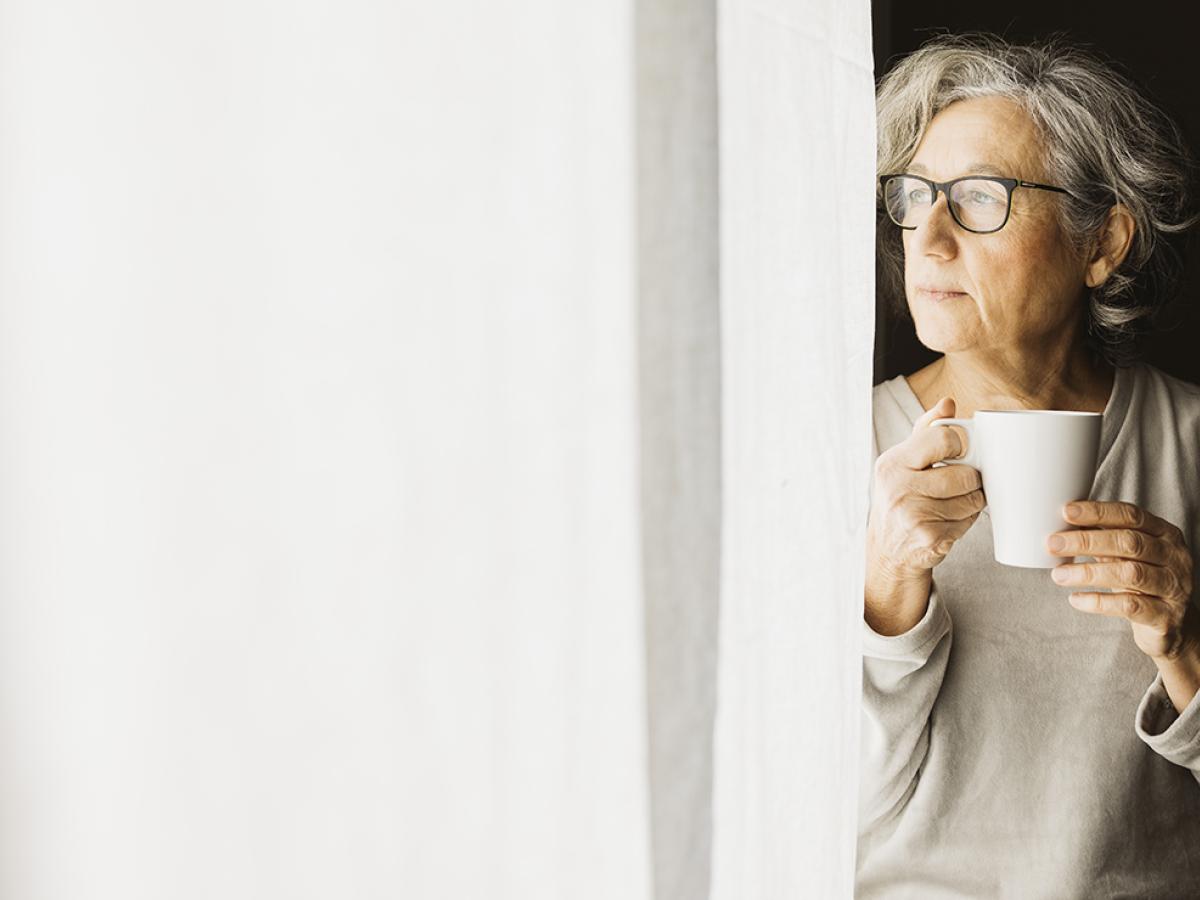October 29, 2024

Humans are social by nature. That’s why a hug makes you feel better and why it hurts when you’re left off the invite list for a party. It’s also why we crave intimacy and try to forge close, personal connections with others. When you don’t have those connections, you feel lonely — even if you aren’t alone.
The problem is that loneliness may have repercussions far beyond the aching you feel in the pit of your stomach. Experts believe it may affect your mental and physical health.
To help us understand just how impactful loneliness and social isolation can be, we turned to MU Health Care licensed professional counselors Lori Rosburg and Barbara Price-Boucher. They share six facts about loneliness and your health:
1. Some People Are at Higher Risk for Loneliness
Anyone can feel lonely from time to time. In fact, a recent poll from the American Psychiatric Association (APA) finds that 30% of adults feel lonely at least once a week, and one out of 10 people feels lonely daily.
But certain factors may make you more likely to experience loneliness, such as:
- Age: Young adults and older adults report the most loneliness.
- Health: People with a chronic disease or disability may feel more socially isolated.
- Income: Adults living in low-income households are three times more likely to be lonely.
- Ethnicity: Black, Hispanic and Asian people report feeling less supported in their communities than white people. Immigrants who face language or cultural boundaries also report high levels of loneliness.
- LGBTQ+ identity: LGBTQ+ adults are twice as likely to report loneliness as non-LGBTQ+ adults.
- Location: People living in rural areas or who don’t have access to transportation may feel isolated.
Some temporary situations can also increase your risk of feeling lonely, such as:
- Being a young mother
- Experiencing a breakup
- Losing a loved one
- Moving to a new town
- Starting a new job
“Loneliness is really a state of being and a feeling,” Price-Boucher says. “You can be in a crowd and still feel lonely. Other times, it’s triggered by actual isolation and not being around people physically. But all loneliness stems from the feeling that you’ve lost connection with others.”
2. Loneliness May Increase Your Risk for Chronic Diseases
According to experts, the need to be social is part of our biological and neurological makeup, leading to better overall health and a longer life. Loneliness can throw off your body’s systems and even lead to disease.
“Socialization is kind of a fertilizer for your body’s physical health,” Rosburg says. “Without it, you can develop chronic health issues.”
According to the Centers for Disease Control and Prevention (CDC), loneliness may increase your risk for many health conditions, including:
- Dementia
- Heart disease
- Stroke
- Type 2 diabetes
Chronic loneliness makes you just as likely to die prematurely as smoking, obesity or inactivity. According to the U.S. Surgeon General’s Advisory, having little to no social connections affects your mortality in the same way as smoking 15 cigarettes daily.
3. Mental Health and Loneliness Have a Complicated Relationship
Mental health issues, such as anxiety or depression, may lead to loneliness. But poor mental health can also be the direct result of feeling lonely.
Mental health and loneliness will always be closely related, Rosburg says. As soon as you’re born, you begin to develop social connections. Eye contact with a parent and the touch of others condition your brain to crave connections with other people.
“Sometimes, if you know the loneliness is temporary, you can get over it, wait it out and move on,” Rosburg says. “But some people get stuck in the loneliness, and those are the people we worry about.”
When you’re socially isolated and feeling lonely, it doesn’t just make you more likely to develop depression and anxiety. It also increases the risk of self-harm and suicide.
4. Loneliness in Teens Can Have Long-Term Effects
Younger people tend to be just as affected by loneliness and social isolation as adults. And Price-Boucher notes that the teenage years are crucial for social development.
“It’s a natural part of development to start to move away from your parents,” Price-Boucher says. “So that exposure to friendships and forging social connections is critical.”
Research has found that higher levels of perceived loneliness in teens are significantly associated with:
- Gaming addiction
- Higher anxiety symptoms
- Increased depression symptoms
- Poor well-being
- Sleep problems
Another study in teens showed a strong association between being socially isolated and having higher levels of cortisol (stress hormone) and worse cognitive development.
“Parents should be on the lookout for red flags, like being unusually withdrawn or rarely interacting with other teens,” Price-Boucher says. “Having family dinners or encouraging your child to join a club or activity can help open the door to regular socialization.”
5. There Are Ways to Manage Loneliness
If loneliness has you feeling anxious or depressed, it can be challenging to overcome it. But taking small steps towards being more social will benefit your mental and physical health.
One proven way to reduce social isolation is to give back to others or the community. Researchers found that people who perform small acts of kindness experience reduced loneliness and stress.
“When you focus on helping others, it becomes more about others and less about fixing your loneliness,” Rosburg says. “But in the process of putting yourself out there, you’ll find the social connections you need.”
Price-Boucher also suggests making use of the community resources available to you. Pinpoint your interests or where you might feel comfortable.
“For older adults, we have groups and meeting places especially for seniors,” she says. “The library is typically a great resource for youth. If you are LGBTQ+, explore events and resources specific to that community.”
6. Loneliness Is a Reason to See Your Doctor
You’d make an appointment to see a medical provider if you had a symptom such as a cough, fever or rash. Loneliness is no different. It can affect your physical and mental health and be a sign of an underlying issue.
Rosburg and Price-Boucher recommend making an appointment with your doctor if you experience:
- Changes in eating or sleeping habits
- Feeling hopeless
- No pleasure in normal activities
- Persistent sadness
“It’s important for your doctor to know if you’re experiencing loneliness,” Rosburg says. “After all, social connection is vital to our health, just like exercise and a healthy diet.”
Next Steps and Resources
- Want to discuss more with a primary care doctor? Find one today.


